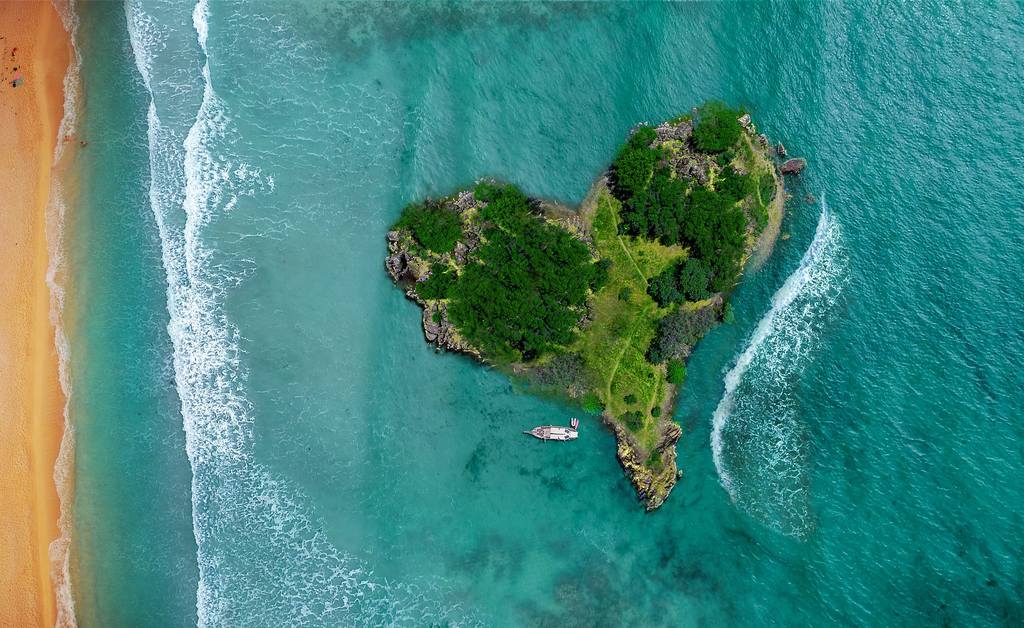Five Sustainable Life Hacks for Women That Save Money
Sea Sisters, let's do it! Discover how you can live and travel to your next dive destination in a more sustainable way. Reduce your carbon footprint, plastic and fresh water waste with these money saving solutions. Watch those videos and Make Waves for Our Oceans!
Let's be honest - in some things women are simply different from men - and that is not a bad thing.
However there are some things men do differently that actually have a lower impact on the environment, leading to marine conservation.
Instead of the battle of the sexes, let's learn and adapt some great examples from our male counterparts.
(For the guys reading this, the compliment rain does not stop here!)
Living more eco-friendly can mean spending more money; compensating your carbon footprint (CO2 / greenhouse gas emission) and buying organic food for example. There are also things you can do that do not cost more, actions that can actually save you money. Sounds good right?
1. Travel Light!
Why do we always take more clothes, shoes, accessories, toiletries and things we don't use on trips than men?
Flying is one of the worst things you can do regarding your carbon footprint, one of the top greenhouse gas contributors to climate change. OK, you might know that already - but as there is simply no coral reef next door you can't take shorter distance flights or alternative travel options. Let's say you have booked an amazing SCUBA diving holiday abroad and you need to go by plane.
There are things you can do to reduce your carbon footprint on flights. Curious? Continue reading.

The first thing you can do is to fly economy class. Business class takes up 70-80% of the overall carbon footprint.
Passenger weight is another factor, a combination of your body weight and luggage (check-in and carry-on). Let's forget about going on a diet, let's talk about how to reduce your luggage weight.
Bringing all your luggage down to 15 kg/ 33 pound for national flights might be something you already master, what would you do if airlines start charging by the kilo/pounds? If you travel with dive gear, it might take up over half the weight of your luggage (let alone volume) - up to 90% if you travel as a fanatic underwater video/photographer or technical diver. As long you can book 'regular fun dives' you should think about renting dive equipment. Especially on dive trips where you will stay/dive in various locations/islands and also plan land-based activities.
Now I am not saying it is easy to leave your beloved trusted serviced SCUBA diving gear at home, I struggle with this myself, but consider it.
Why should we drag all our dive equipment around the world to a place that is set-up for it having it all in place? Even at remote places, like home stays in Raja Ampat and various islands in the South Pacific, I rented the heavy dive gear basics (BCD/Regulator/Fins) without a problem.
TIP: If trusting the rental dive equipment is the issue, send the dive center an email and ask details/photos/service dates, etc.
Create Your Own Travel Capsule
Save your travel bag or suitcase (and the things inside) from breaking - being overloaded. Yes, this also happened to me. To fly with less luggage is not only a lot more comfortable when moving from door to door, it reduces your carbon footprint. OK, it won't save the world but is does have an impact and one thing can lead to another. Don't maximize your luggage - fly and drive light. Do you really need five dresses, ten shirts and five pairs of shoes for a dive/beach holiday?
You can dress to impress with less! Take only the basics and combine your clothes creating different outfits, manage the maximum capacity of your clothes.
Get your inspiration here: 50 OUTFITS FROM 25 ITEMS | Summer Capsule Wardrobe 101 by Morgan Yates:
BONUS: Have you ever heard of decision fatigue? There are so many decisions you need to make in one day, you can get tired of it. One of the reasons why Steve Jobs, Mark Zuckerberg and even Barack Obama wear the same clothes over and over again - it gives more time to focus on the really important things...
2. Buy Less New Clothes!
Why do we always outnumber men when it comes to buying and keeping clothes?
To produce (and transport) clothes, especially jeans, takes a lot of toxic chemicals and dyes that end up in the rivers who eventually run into our oceans.
An environmental disaster is unfolding as our demand for fashion items increases. Especially low cost clothing has a high environmental price.
Buy less new clothes, maximize your clothes capacity (see the first hack) and if you must, buy secondhand - it saves money as well!
Watch this trailer of RiverBlue: Can Fashion Save the Planet, an award-winning documentary about the dark side of the fashion industry:
The wars of the future will not be fought about oil, the wars of the future is going to be fought about water."
Kumi Nado, International Executive Director Greenpeace.
3. Get a Menstrual Cup!
(Sorry guys, scroll down to #4 now)
Let's talk about our environmental impact when using tampons and sanitary pads. Have you even been at an amazing dive location without (enough) tampons? Especially at the more remote locations it can get really annoying. After an incredible long search in Moalboal, The Philippines, I ended up paying 1$ per tampon. Trying to explain what you need to buy in an unknown language or maybe even with photos or hand signals can be hilarious and humiliating. Been there, done that - new solution to it all: The menstrual cup!
The average woman throws away 250 to 300 pounds (115-140 kg roughly) of "pads, plugs, and applicators" in her lifetime.
Finally I switched to something more sustainable, cheaper and easier - especially when SCUBA diving (there are soooooo many dive boats without a toilet around...). It took me a few periods to get really comfortable with it, or let's say fully switching, but I will never go back! The cup I use is from the brand Mooncup and I can highly recommend it. Check it out and get one to try it yourself - it does not cost a fortune and it can be the last menstruation protection you need to buy (money saver)!
Do you want to know about the menstrual cup / the Mooncup? Watch this video and try not to laugh:
4. Take Shorter Showers!
Or are you really showering quicker than your boyfriend/husband?
Off course a shower can be a moment for yourself in a day, a bit of self-care and relaxation that is precious. Taking shorter showers does not mean you need to spend less time in the shower, just use less water. When you are not rinsing anything off, close the shower tap , do not leave it running. Similar like closing the tap when you brush your teeth - you do not need running water when you shave your legs, put shampoo or conditioner in your hair or soap your body. Close the tap and combine the things you do in the shower in a more efficient way. Be conservative and think how long you really need to shower...
Watch this video for the impact of our fresh water consumption:
5. Use Less Make-up, Personal Care and Hygiene Products
What percentage of things in the bathroom are his?
It's quite impressive how many beauty products are around nowadays, there is literately something for every little flaw or problems you didn't even knew you had before. Think about all the packaging and ingredients like microplastics, it does not need to go directly into the ocean to have an impact on it, like some sunscreens. For sure I am not a beauty product expert, using no make-up or hair styling products, so I will give you only one personal tip (or actually two-in-one - don't laugh).
TIP: Cosmetic tattooing! Getting permanent tattoos is great in many ways, especially when SCUBA diving. OK, the return on investment might take a while, depending on the brands you use (meaning make-up, make-up tools and make-up removers), but it will save money and a lot of time! For about 10 years I have eyeliner tattoo and it is great, no more 'panda eyes' after SCUBA diving. TIP 2: Don't get that done in a random place in Bangkok (yes, I did that too, had to do a re-do in The Netherlands and this one still lasts).
Watch this video about minimalist beauty swaps from the Less waste series by Use Less:
What are you doing to have a less environment impact? Share it below!
If you want know how big your environmental footprint is, try the Carbon footprint calculator from WWF.
More tips to help saving the reef, without changing your whole lifestyle: How to Help Saving The Reef - 10 Easy Ways
This article contains an affiliate link, meaning if you buy something I get a little commission - Thanks for your support!
Founder of Dive O'Clock "It's dive o'clock somewhere!"

Continue reading
Share this page:











